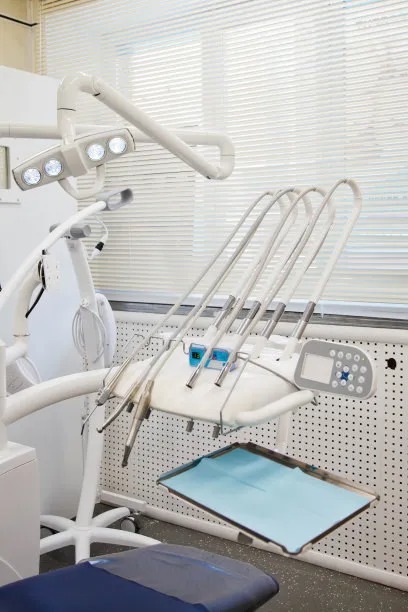Exploring the Impact of Periodontal Disease on Overall Health and Its Connection to Systemic Conditions and Chronic Diseases
Summary: Periodontal disease, a common condition affecting the tissues surrounding the teeth, has far-reaching consequences beyond oral health. This article dives into the intricate connections between periodontal disease and systemic health, outlining how it interplays with several chronic diseases and systemic conditions. We explore its relationship with heart disease, diabetes, respiratory illnesses, and its impact on overall well-being. Through understanding these connections, it becomes evident that maintaining oral health is crucial not just for preventing dental issues but also for promoting general health and preventing serious systemic conditions. Acknowledging this link can lead to better health outcomes for patients and a more comprehensive approach within healthcare systems.
1. Relationship with Cardiovascular Disease

The connection between periodontal disease and cardiovascular health has garnered significant attention in recent years. Research indicates that individuals with periodontal disease have a higher risk of developing heart disease. This is partly due to the inflammatory response triggered by the bacteria in the gums, which can lead to systemic inflammation.
The bacteria from periodontal infections can enter the bloodstream, potentially leading to the formation of arterial plaques. This process, known as atherosclerosis, narrows the arteries and increases the risk of heart attacks and strokes. Thus, maintaining healthy gums can be seen as an essential part of protecting cardiovascular health.
Furthermore, the chronic inflammation associated with periodontal disease can exacerbate existing cardiovascular conditions. Patients with both periodontal disease and heart disease may experience more severe symptoms, emphasizing the need for integrated care that addresses both oral and heart health.
2. Connection to Diabetes Management
Diabetes and periodontal disease have a bidirectional relationship that complicates the management of both conditions. Individuals with diabetes are more susceptible to infections, including periodontal disease, due to impaired immune responses. Additionally, the inflammation resulting from gum disease can make it more challenging for individuals with diabetes to control their blood sugar levels.
Studies have shown that effective periodontal treatment can lead to an improvement in glycemic control for diabetic patients. This highlights the importance of dental check-ups and maintaining good oral hygiene as vital components of diabetes management. Integrating dental care into diabetes treatment protocols may provide an opportunity for better overall health outcomes.
Moreover, the prevention of periodontal disease in diabetic individuals could significantly reduce the risk of related complications. A holistic approach that recognizes the interconnectedness of oral and systemic health can ultimately enhance quality of life for those living with diabetes.
3. Impact on Respiratory Health
Periodontal health is not only crucial for oral well-being but also plays a significant role in respiratory health. Poor gum health can contribute to respiratory diseases, particularly in individuals with pre-existing lung conditions. The bacteria from periodontal infections can be aspirated into the lungs, causing or exacerbating conditions such as pneumonia and chronic obstructive pulmonary disease (COPD).
Several studies have demonstrated that patients with periodontal disease have a higher incidence of respiratory infections. The link between oral bacteria and lung health suggests that maintaining periodontal health could be an essential preventive strategy, especially for vulnerable populations such as the elderly and those with chronic respiratory ailments.
Furthermore, an inflamed oral cavity can impact breathing and overall lung function. Ensuring good oral hygiene therefore contributes not only to dental health but also to respiratory well-being, highlighting the importance of integrating oral care into the broader spectrum of health management.
4. Effects on Overall Well-being and Quality of Life
Periodontal disease severely impacts overall health and can degrade quality of life. It is often associated with pain, difficulty in eating, and social stigma, which can lead to emotional distress. The embarrassment over oral health issues can result in social withdrawal and lower self-esteem, emphasizing the psychological impact of periodontal disease.
Additionally, there is evidence linking periodontal disease to various mental health conditions, including anxiety and depression. The stress of managing a chronic health issue can lead to negative mental health outcomes, indicating the need for comprehensive care that takes both physical and mental health into account.
Caring for teeth and gums isn’t just about aesthetics; it’s a crucial aspect of maintaining overall well-being. Regular dental check-ups can help prevent periodontal disease, contributing to a better quality of life for individuals and enhancing their self-confidence.
Summary:
In conclusion, periodontal disease is a significant public health concern that extends its influence beyond oral health. The connections between periodontal disease and systemic conditions such as cardiovascular disease, diabetes, respiratory illnesses, and overall quality of life illustrate a critical need for integrated healthcare approaches. By addressing dental health in the context of general health, we can foster better health outcomes and prevent severe chronic diseases.
This article is compiled by Vickong Dental and the content is for reference only.



